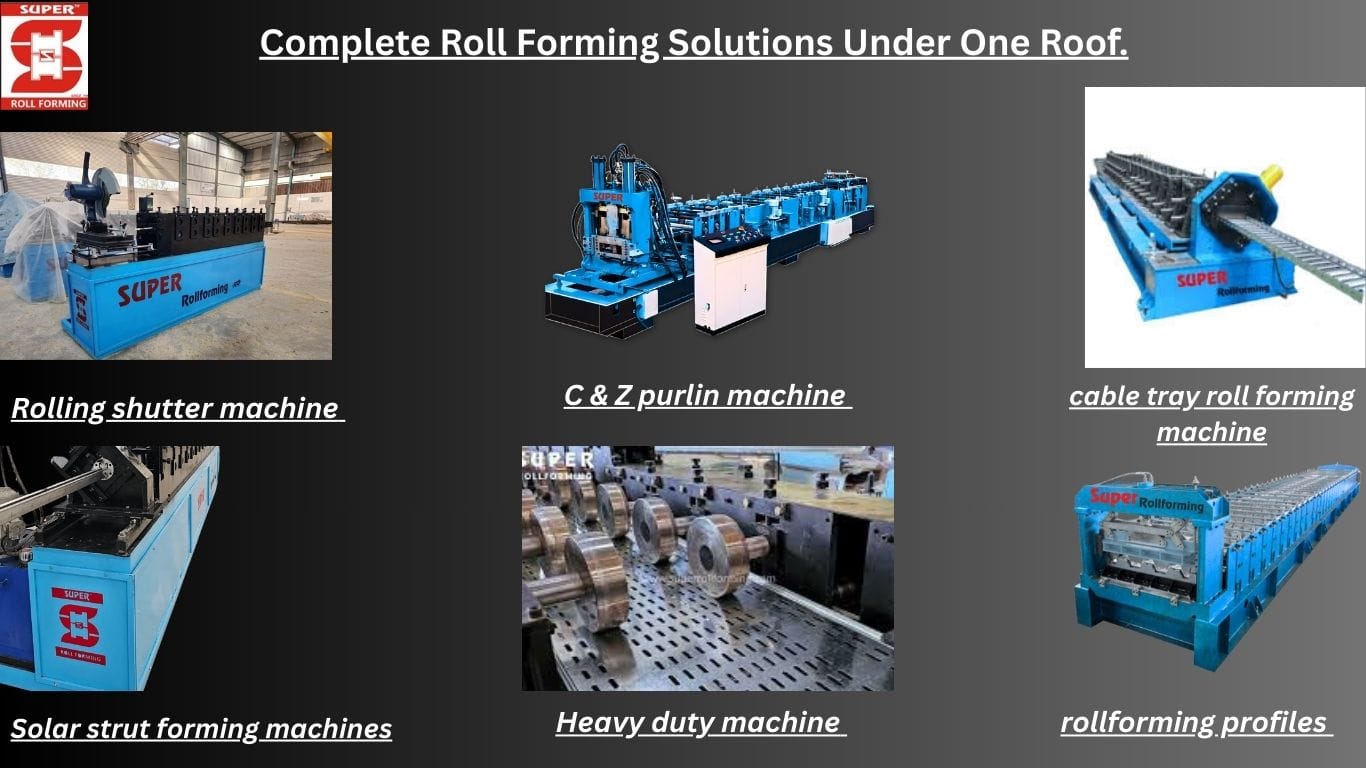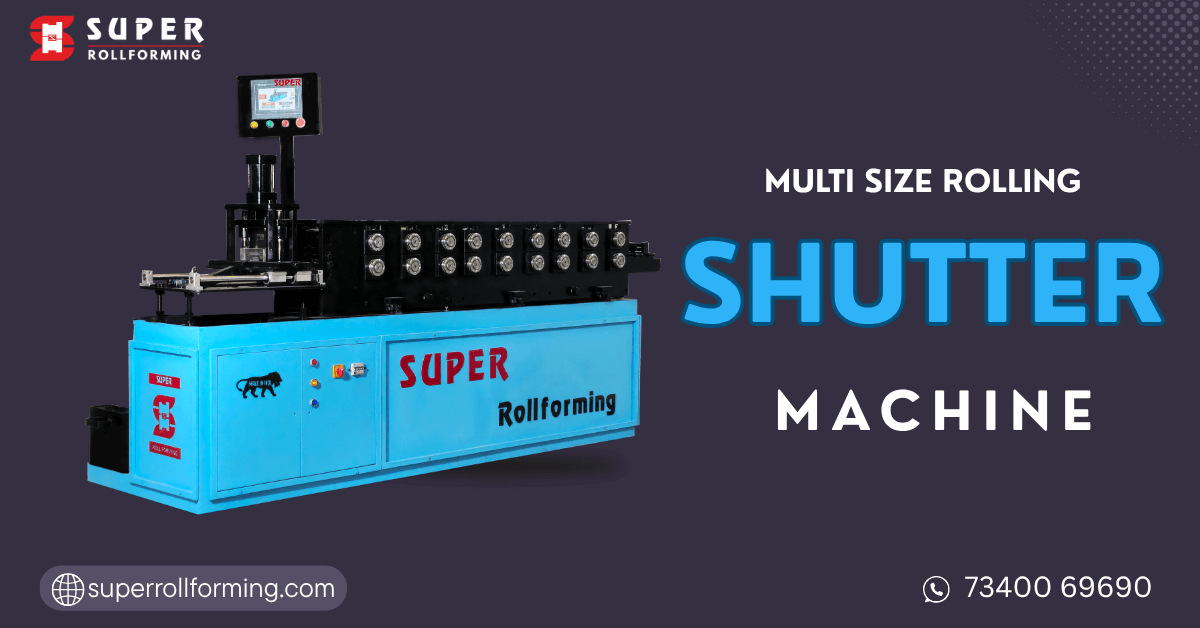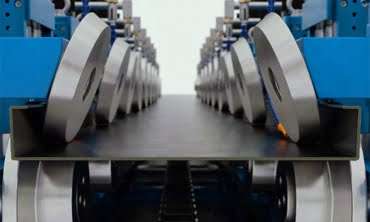Introduction
In today’s competitive manufacturing landscape, roll forming has become a go-to process for producing highly durable and precise metal components across various industries. Whether it’s the automotive, construction, or solar energy sector, roll-formed products offer a combination of cost-effectiveness, strength, and customization. However, the key to ensuring these advantages lies in the quality of the roll-forming process itself. Poor-quality control can lead to wasted materials, defective parts, and dissatisfied customers. This blog will explore why quality in roll forming is crucial and how it can benefit both manufacturers and end-users.
What is Roll Forming?
Roll forming is a continuous bending operation in which a long strip of sheet metal is passed through consecutive sets of rolls, each performing only incremental parts of the bend until the desired cross-sectional profile is obtained. The process is often used for custom roll-formed products like solar panel mounting systems, industrial carts, and automotive components.
The main advantage of roll forming lies in its ability to produce complex shapes with high repeatability, making it ideal for high-volume production. However, achieving this precision and efficiency is highly dependent on the quality of materials, tooling, and process control.
Why Quality Matters in Roll Forming
1. Precision and Accuracy
One of the primary reasons why quality control is so vital in roll forming is to ensure precision and accuracy. Manufacturing processes require tolerances to be met precisely, and even minor deviations can lead to significant issues down the line. High-quality tooling and accurate setup ensure that each part is made consistently to specifications, reducing waste and rework.
For instance, in the automotive industry, safety-critical parts such as structural reinforcements or bumper components must adhere to strict tolerances. Any deviation can result in mechanical failures or compromised safety. This is why manufacturers focus on maintaining the highest quality standards in roll forming.
2. Durability of Products
Another crucial aspect is the durability of the final products. A high-quality roll-forming process ensures that the metal parts are free from defects like cracks, warping, or improper coatings. This is particularly important for products like solar strut channels, which need to withstand harsh environmental conditions while supporting heavy loads.
When manufacturers invest in quality raw materials and equipment, they produce more durable components that meet industry standards. In sectors like construction and solar energy, where product failure can have severe consequences, the emphasis on quality cannot be overstated.
3. Cost Efficiency
While the initial investment in quality materials and equipment may seem high, maintaining high-quality control throughout the roll-forming process can actually reduce long-term costs. Poor-quality production often leads to material wastage, increased labor costs for rework, and higher rejection rates. This not only eats into profits but also leads to longer lead times and dissatisfied customers.
In contrast, focusing on quality reduces these risks, leading to cost efficiency and quicker time-to-market. Custom roll-formed products that meet strict quality standards often outperform mass-produced components, providing manufacturers with a competitive edge.
Key Factors that Impact Roll Forming Quality
1. Material Quality
The type and quality of raw materials used in roll forming play a significant role in determining the overall quality of the product. Using high-grade steel, aluminum, or other metals ensures that the formed parts maintain their structural integrity and performance.
Low-quality materials, on the other hand, can lead to cracking, splitting, or warping during the process, which negatively impacts the final product’s durability.
2. Tooling and Equipment
The quality of tooling and machinery used in the roll-forming process also has a direct impact on the outcome. Precision-engineered tooling can maintain tight tolerances and prevent inconsistencies. Additionally, modern CNC-controlled roll forming machines offer enhanced accuracy and repeatability, making them essential for achieving high-quality results.
3. Process Control and Inspection
Another critical factor in ensuring quality in roll forming is the level of process control and inspection in place. Continuous monitoring during production helps to quickly identify and rectify issues before they result in defective parts. Automated systems, like real-time quality monitoring, can greatly enhance this process, ensuring that each part meets the required standards.
Benefits of Investing in Quality Roll Forming
1. Customer Satisfaction
Providing high-quality roll-formed products leads to improved customer satisfaction, which in turn fosters long-term relationships. Satisfied customers are more likely to return and recommend your services, increasing brand loyalty.
2. Reputation and Compliance
High-quality production also helps companies maintain a strong reputation in the industry. Many sectors, such as automotive and construction, require compliance with specific industry standards and certifications. By maintaining stringent quality control, manufacturers can ensure their products meet these requirements.
3. Reduced Downtime and Maintenance
Investing in quality during the roll-forming process reduces machine downtime and the need for frequent maintenance. High-quality equipment and tooling last longer and require fewer repairs, which ultimately boosts overall productivity.
Conclusion
In the world of roll forming, quality is not just an option—it’s a necessity. From ensuring precise tolerances and durability to reducing costs and enhancing customer satisfaction, maintaining the highest quality standards in roll forming can give manufacturers a significant edge in today’s market. By investing in quality raw materials, state-of-the-art equipment, and stringent process control, companies can produce superior roll-formed products that meet the demands of a variety of industries.





